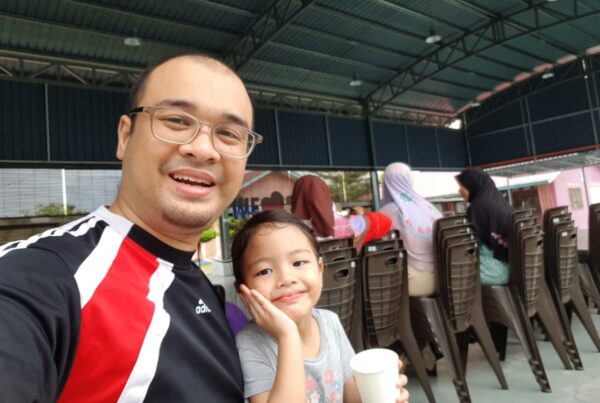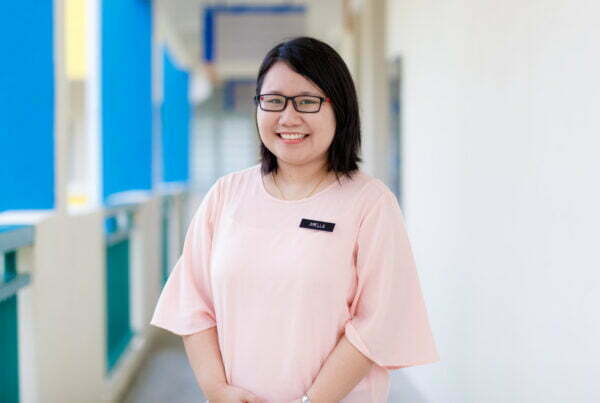By Yang Safia, 2014 Alumna
My experience at the KL Meets London: Poetry Education Forum back in May was nothing short of inspirational. I left feeling giddy and excited about the literary industry in Malaysia.
To loosely quote published poet Melizarani T. Selva, who was at the event:
“The poetry movement in Malaysia is experiencing a renaissance.”
I saw stars. However, I would be lying if I didn’t say I have some reservations.
After going through the Fellowship, my faith in English literature suffered greatly. I saw how my kids struggled through our poetry lessons – instead, studying for exams became their top priority.
The event had two panels; the first consisted of poetry experts, while the second consisted of people from various parts of the education industry in Malaysia.
They kicked things off with a cool lesson plan idea on how to get your students started on writing poetry:
 Elaine Foster guided us through this introductory poetry lesson that you can do with your students.
Elaine Foster guided us through this introductory poetry lesson that you can do with your students.
Next, British poet Cat Brogan shared how she used poetry to help her students, who are mainly newly arrived refugees and immigrants to the UK.
 Cat Brogan in the house!
Cat Brogan in the house!
According to Brogan, poetry gives a voice to students who are unable to communicate in English. It helps them integrate into their new environment.
Poetry acts as a bridge to discuss difficult topics surrounding the lives of students, such as domestic abuse and sexuality. Check out this video that Brogan’s class made on Islamophobia:
 Poetry experts take the stage
Poetry experts take the stage
I was curious as to how we could implement Brogan’s talk in our Malaysian context. Despite me being sceptical, I had confidence that the experts knew what they were talking about.
I was expecting them to cite examples from private or international schools, but surprisingly a lot of their work was with communities living on the fringes and national schools.
While poetry is not necessarily the only tool to draw out students’ voices, it is a medium that thrives on their experiences.
It allows their voices to be heard.
One of the panelists said there is a need to push for better representation of student voices in the education system, which resonated a lot with the direction Teach For Malaysia is heading in.
During the lunch break, I was talking to this man who asked me to just call him ‘Shan’. I didn’t realise who he was until Melizarani pointed him out.
He was actually M. Shanmughalingam, the poet of Heir Conditioning. I had a fangirl moment. Literally did not expect that!
 M Shanmughalingam and me!
M Shanmughalingam and me!
Then it was my turn to be on the education panel.
We talked mainly about our experiences as teachers from different sectors. It was interesting to see how there is a disparity on how tertiary educators in the public sector understand the challenges that teachers face in schools.
At the same time, teachers share similar challenges regardless of whether they are in the private or public sector.
We lamented our mutual difficulty in getting school administrators to take poetry education seriously. Often we had to package poetry and performing arts as literacy programmes in order to get permission to conduct them.
 The education panel
The education panel
This experience has taught me that teaching poetry and literature is possible (and even impactful!) in a high-need school.
I wish I was exposed to these opportunities back when I was a Fellow, but at the same time I knew I wouldn’t have time for these types of events too.
I really encourage Teach For Malaysia to connect these poetry experts to Fellows who are interested in exploring poetry education with their students.
We want to push for more students’ voices in the education system?
Maybe poetry education is a good place to start.
Yang Safia is a 2014 Teach For Malaysia Alumna. She taught in a school in Selangor, and is currently lecturing at Sunway College. Yang continues to work with the students she taught during her Fellowship, in a personal capacity.





